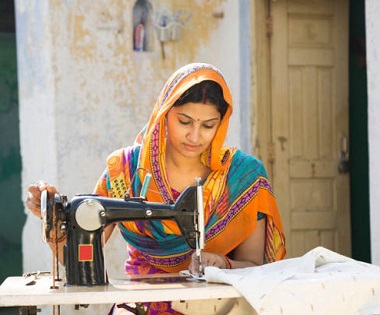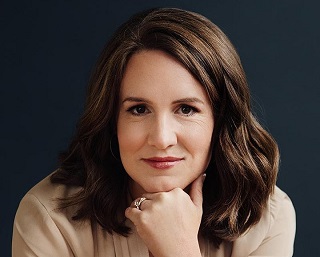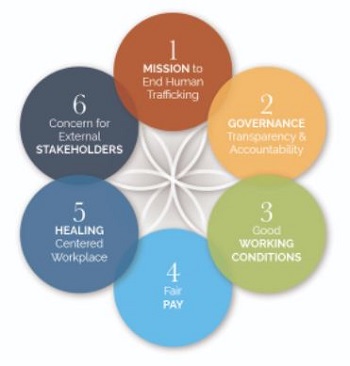
Freedom Business offers training and safe jobs.
Business As Mission (BAM) is a movement that is picking up steam. While it always involves business ventures with a ‘kingdom of God purpose,’ some examples make the case in a particularly compelling way.
Rachel Rose Nelson will tell the story of a “global alliance working to end human trafficking by addressing its economic roots” during the Business As Mission Conference next Friday, June 3. (Ticket sales end May 31.)
The Executive Director of Freedom Business Alliance will be one of two keynote speakers for the day-long event at the Vancouver Marriott Downtown Hotel.
Following is their description of what they do.
Understanding Freedom Business starts with understanding human trafficking. Today over 40 million people around the world are victims of human trafficking, also known as modern slavery.¹ This statistic is simply staggering. While awareness of this global crisis has grown, many are unfamiliar with what human trafficking is and how it happens.

Rachel Rose Nelson will be a keynote speaker.
Human trafficking is the recruitment, transportation, transfer, harbouring or receipt of persons, by means of threat, use of force or other forms of coercion. Traffickers use means such as abduction, fraud, deception or the abuse of power to gain control of their target victims.
Essentially, traffickers identify then leverage their victims’ vulnerabilities in order to create dependency. This often includes the giving or receiving of payments or other benefits to achieve the initial consent of a person – sometimes even a family member – who has control over the intended victim.²
Their end goal is labour exploitation – forced labour and sex trafficking which together amount to global profits of roughly $150 billion a year for traffickers, $99 billion of which comes from commercial sexual exploitation.³
An estimated 71 percent of enslaved people are women and girls, while men and boys account for 29 percent.⁴ Traffickers prey on socioeconomic vulnerabilities for their own gain.
 How human trafficking happens:
How human trafficking happens:
- Traffickers buy and exploit people vulnerable due to extreme poverty
- Desperate families send or sell their children for promises of work
- Perpetrators use threats, violence and other tactics of control
The journey to freedom:
- Rescue organizations free victims of trafficking and exploitation
- Restoration organizations provide counseling and rehabilitation
- Freedom Businesses offer training and safe jobs
The need for Freedom Business
Efforts to rescue victims of human trafficking have steadily risen over the last decade. However, the vulnerabilities of survivors do not disappear once a victim has been rescued. The factors that made them vulnerable in the first place, such as a lack of education, job training or employment opportunities, still exist.
The trauma of being trafficked then adds yet another layer of vulnerability. This leads to a startling level of re-trafficking. 80 percent of those rescued from modern slavery, also known as Human Trafficking, will be re-trafficked in the absence of safe employment opportunities.⁵
To fight modern slavery and exploitation we need a strategy that includes more than rescue, one which addresses the economic vulnerabilities at the root of the problem. Freedom Business is that strategy, but it is not without incredible challenges.
Freedom Business exists to create employment opportunities for survivors of human trafficking and those at risk.
These businesses create a healing-centered workplace intentionally designed to support the healing journey of survivors and contribute to their holistic development. They uphold the Six Commitments as outlined in the Freedom Business Code of Excellence.
100 members / 28 countries
 Today there are about 100 Freedom Businesses operating in more than 28 countries around the world. It is the mission of Freedom Business Alliance (FBA) to scale the Freedom Business Movement. Our vision is a job for every person healing from modern slavery and vulnerable to exploitation.
Today there are about 100 Freedom Businesses operating in more than 28 countries around the world. It is the mission of Freedom Business Alliance (FBA) to scale the Freedom Business Movement. Our vision is a job for every person healing from modern slavery and vulnerable to exploitation.
As an industry facilitator for Freedom Business, FBA removes the many barriers to growth and scale that no single business can address on its own. We connect the many players in the Freedom Business ecosystem and coordinate collective action.
- International Labor Office. “Global Estimates of Modern Slavery: Forced Labour and Forced Marriage Executive Summary 2016.” Available at: http://www.ilo.org/wcmsp5/groups/public/@dgreports/@dcomm/documents/publication/wcms_575540.pdf
- United Nations. (2000). Protocol to Prevent, Suppress and Punish Trafficking in Persons, Especially Women and Children, Supplementing the United Nations Convention against Transnational Organized Crime. Retrieved from https://www.refworld.org/docid/4720706c0.html
- Human Rights First. “Human Trafficking by the Numbers.” Accessed July 31, 2019. https://www.humanrightsfirst.org/resource/human-trafficking-numbers.
- Free the Slaves.“Trafficking and Slavery Fact Sheet.” Accessed July 31, 2019. https://www.freetheslaves.net/wp-content/uploads/2018/04/Trafficking-ans-Slavery-Fact-Sheet-April-2018.pdf
- Thomson Reuters Foundation. “Jobs to Restore the Lives of Slavery Survivors and Prevent Re-trafficking.” Trust Conference. Accessed June 02, 2018. http://www.trustconference.com/actions/i/?id=0598c1c2-c724-410d-a5e0-ac60fa9d7b8c
Go here for more information and to register. The other keynote speaker is Mark Wexler, Co-founder and Managing Partner of Just Business. Several local business people will participate in panels as well.
